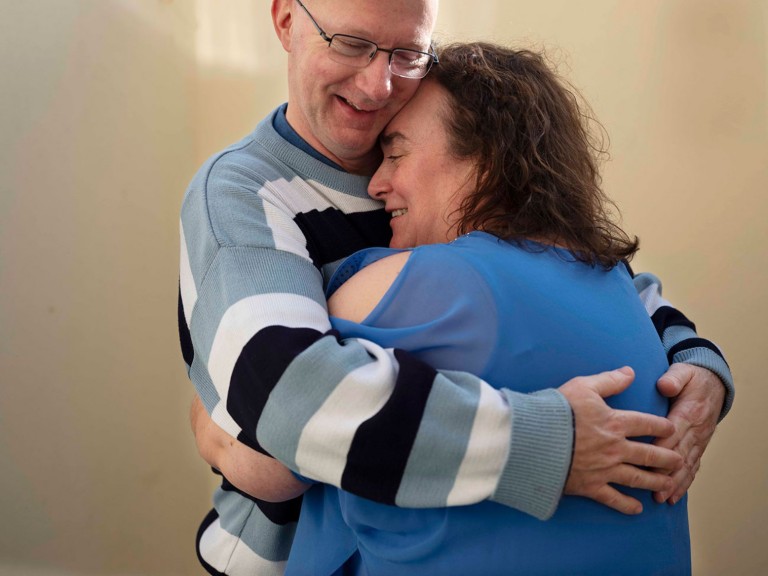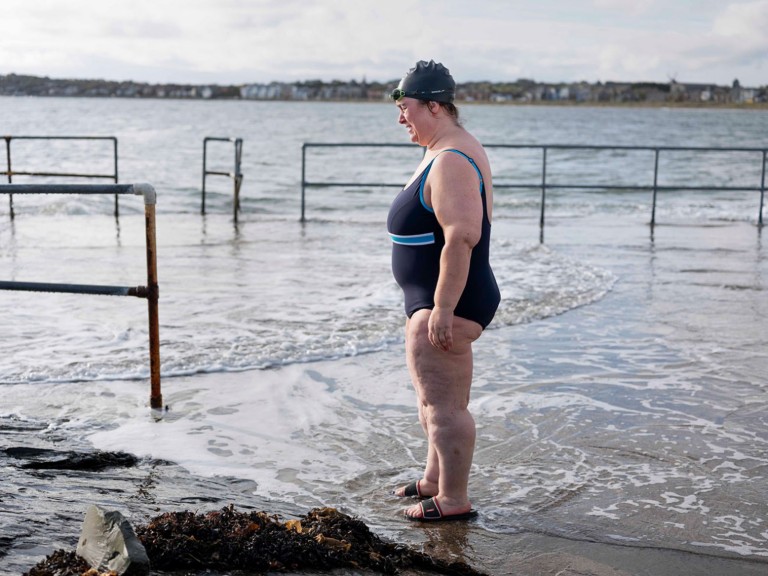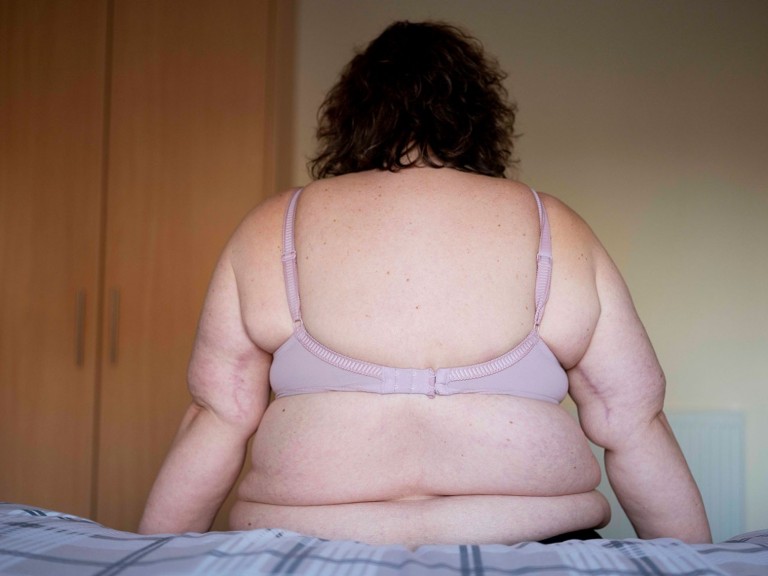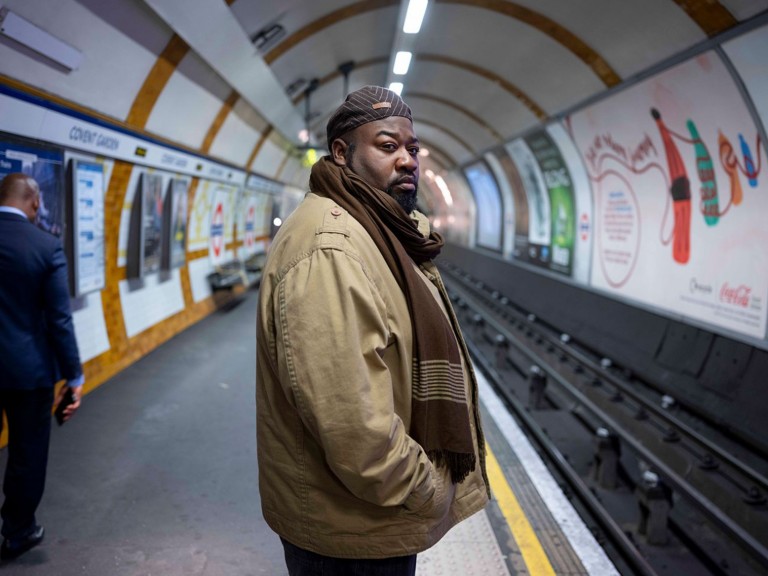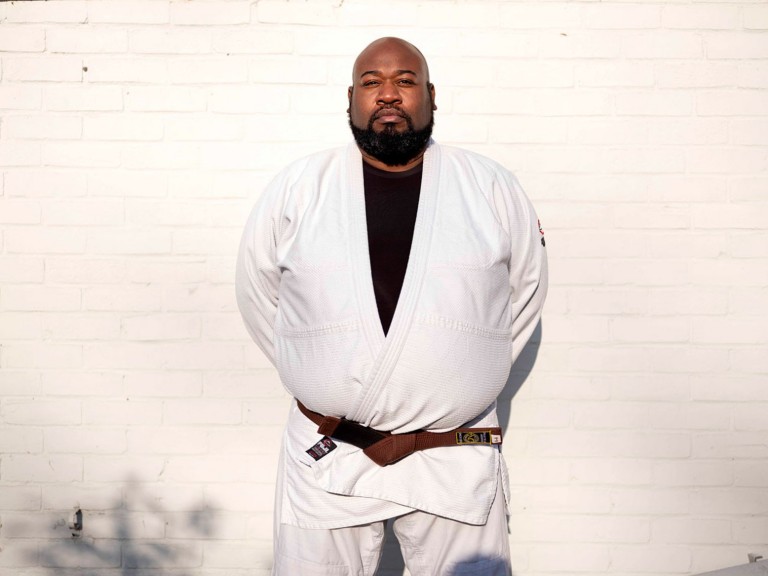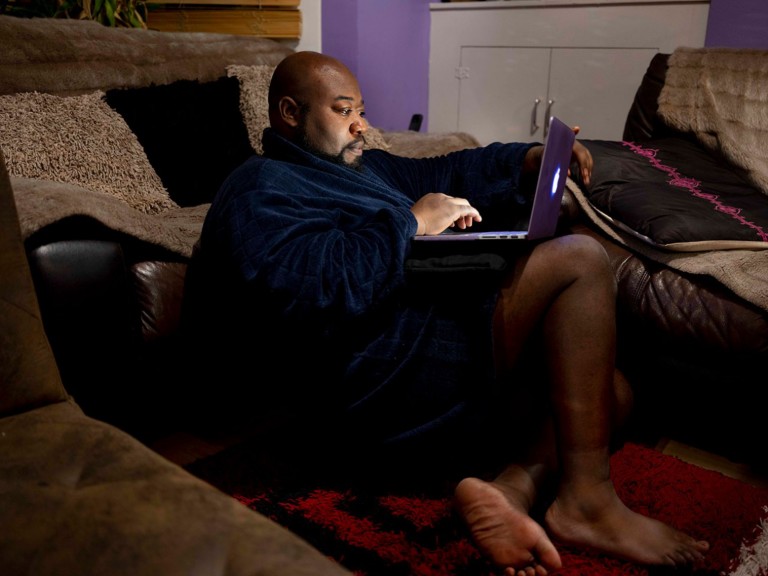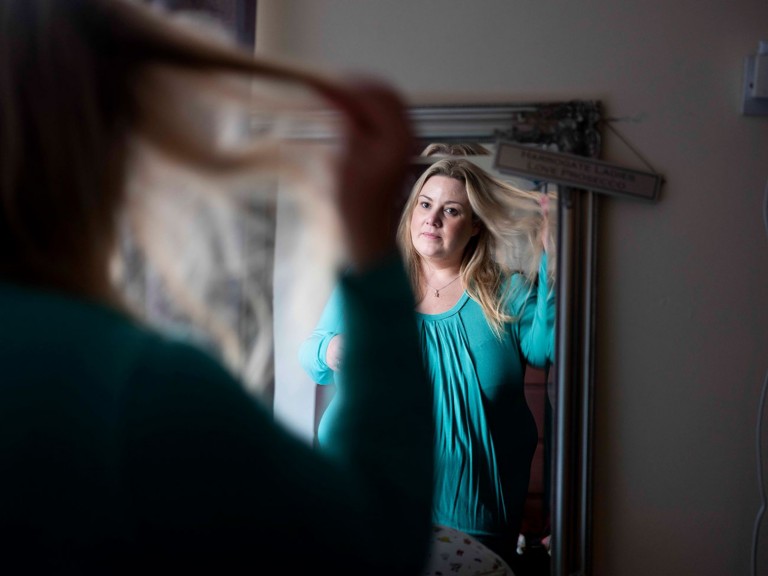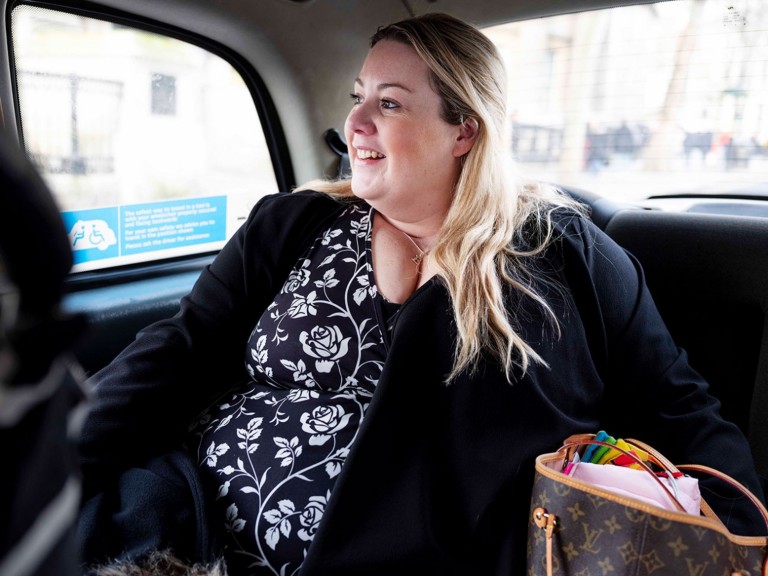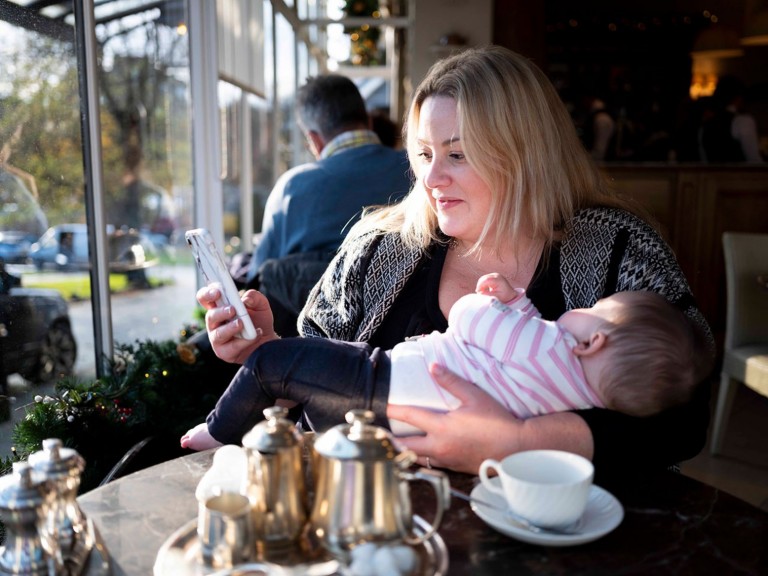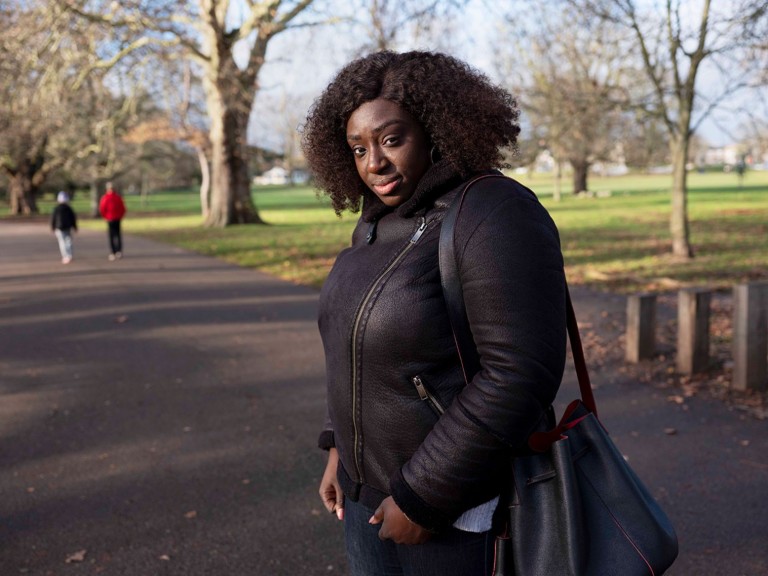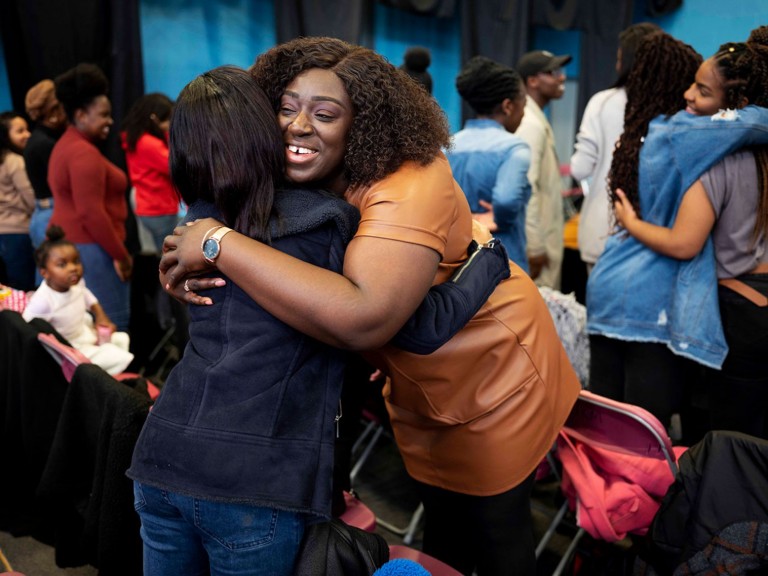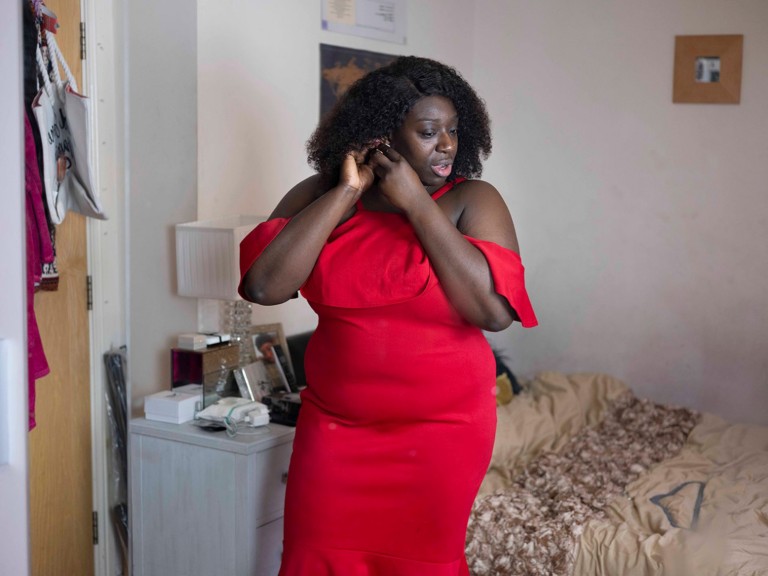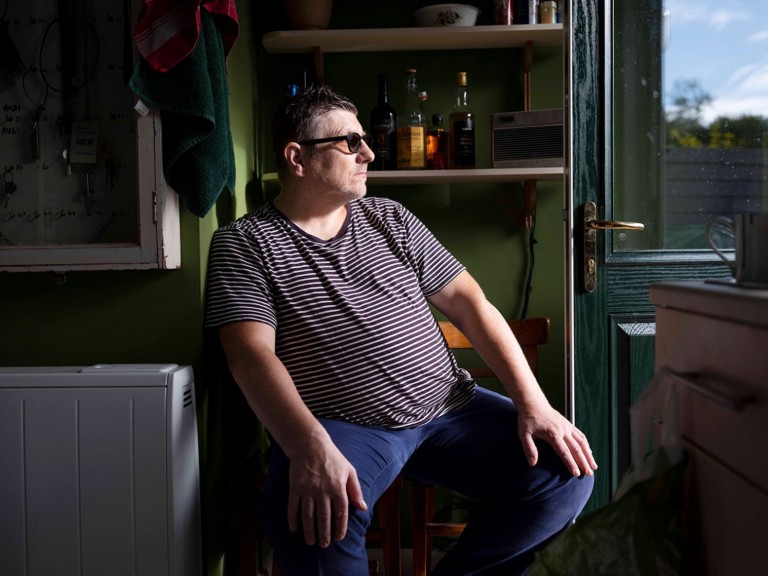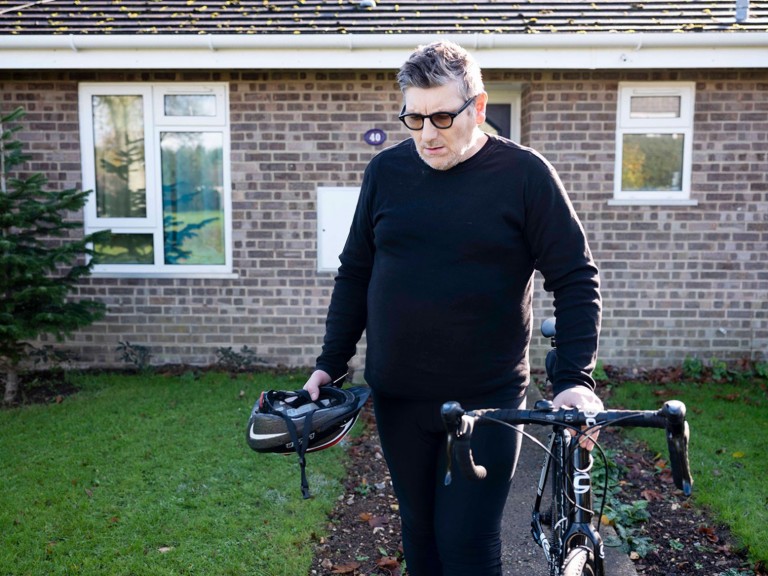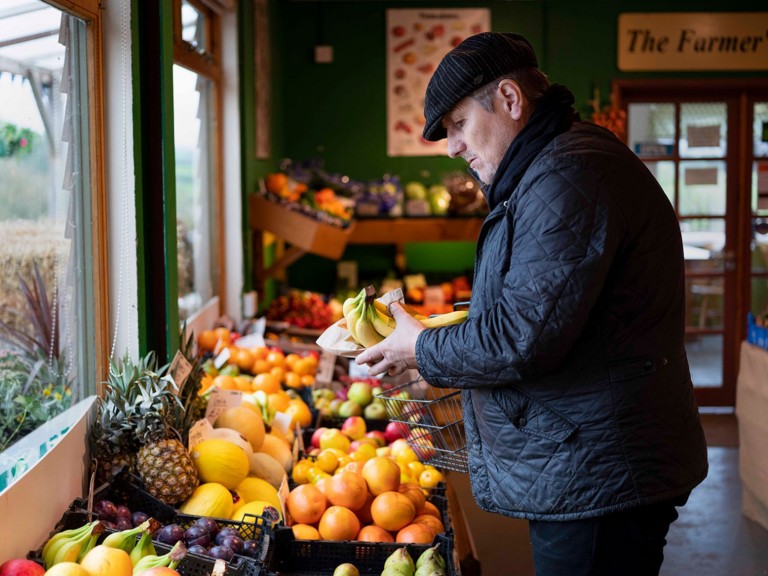Abbie Trayler-Smith is a UK-based photographer with personal
experience of living with obesity when she was a teenager. Her
previous work, The Big O Project and Obesity and Britain’s
Boys, has shed new light on the lives of people with obesity in
the UK.
“I have lived with obesity since I was young, and it’s still a part of my life. I have grown older and wiser, but the subject still remains very much a taboo. In the media, the photos used to illustrate stories about obesity show people without heads or indulging in unhealthy food, fuelling the common misconceptions that these people are at fault of their condition - and can therefore be mocked,” Abbie says.
“In this new photo series, I share the stories of five people who have bravely invited me into their lives to share their experiences through words and images. We need more authentic stories like these to balance the narrative about obesity often seen in the media.”
When I was young, I was very physically active. I swam in
competitions, swimming five days a week. In school I played basketball
and tennis, and I practiced martial arts for six years. When I was 20,
I had a bad knee injury and had to stop any activity that caused me
further pain. The only regular exercise I could do from then was
swimming. My weight started to increase. Depression set in, and with
that came very low self-esteem. I sailed through my 20s in
denial.
It’s hurtful when my family make comments, because they make you feel like you're letting them down. ‘Have you not tried this, did you not try that, why can't you, do you know I'm worried sick about you, you know I'm up late at night, I can't sleep thinking about how your health is?’
My partner John is my rock and my world. Having somebody who understands and supports you with no judgement is absolutely something else. I feel comfortable to be myself around him. John has helped me the most with my obesity struggles because he listens.
Weight is something that is on my mind every single day. I wish I could go a single day without stressing about food or about making the right choices, but that’s never going to happen. I will live with obesity for life. You cope better by just accepting that this is a disease - a lifelong struggle.
By 13 or 14, I wanted to feel strong and I wanted to be in a position where I didn't have to deal with the crap at home. Name-calling at school made me super sensitive as a kid, and often made me unkind and not so nice to be around. I didn’t trust anyone.
When I was a teenager, I started going through these phases where you just want to look good and you want to do stuff that makes you feel good. So I started martial arts, and Taekwondo was my first stop. The instructors were real, serious, positive role models. They helped you to actually embrace what you have and work out how to use it in a positive way. I took all of that mindset and that mental strength and freedom into my everyday life. It wasn't about trying to make you skinny, it was trying to make you the best that you could be.
I want people to be more patient and considerate. To take the time to learn what's actually happening in that person's life. To ask themselves, ‘does this person need help with something on their journey?’
From my experience, you hear people who’ve suffered abuse or trauma
and then food has become a crutch for them. Mine was when my granny
died when I was nine. I stood at school waiting for her to pick me up,
but she never turned up because she’d had a car crash and died. And
I’ve blamed myself for her death ever since.
I’m so passionate about my daughter, Emily. I don’t want her to ever have an issue with the way she looks, I don’t want to put any ideas in her head that she’s not OK the way she is. When I first started trying to become pregnant, I didn’t think about my size being an issue; after all, no one knows for sure if they can have a baby. Ultimately, it wasn’t an issue and I got pregnant. I felt good, and I wasn’t so bothered about my tummy anymore because it had a baby in there. It made me look at my body in a different way.
I genuinely believe that in 10-20 years’ time we will look back at the way we have treated people living with obesity and be absolutely horrified. I hope that society will understand that obesity is hugely complex, and it’s not as simple as eating less and moving more.
In my final year at uni, my best friend passed away. That's when I just hit rock bottom. I wasn't really social anymore. I lost my appetite for a very long time. When I regained it, I just ate all the wrong things at the wrong time - I didn't really care.
I was cast in a show to be a nurse. I got called two days before the shoot and was told that I was getting dropped. When I asked why, they said, “It's because we realised that the nurse’s uniform won't fit you”. I was absolutely devastated. I don't want to feel like I'm forced to lose half my weight in order to get a TV role, or a film role or stage role.
I’m not going to walk around with a bag of worries because I’m larger than the average person. Yes, I’m big. I hope to lose the weight, but whilst I’m in it I’m not going to be depressed.
My ideal weight is supposed to be around 80 kg, but I've never been that in my life and I just don't know how I'm going to achieve it. But I am progressing, and weigh myself regularly to keep my weight loss on track.
People often pat your stomach and say, “Oh, I can see you’re keeping the squash routine up there.” It is rude – I’m fed up of with people who tell me to eat less and do more exercise.
I’m doing as much as I can; three gym sessions a week, cycling twice a week, not eating rubbish food, cooking all my meals. Considering that most days I have zero motivation and that much of my time is taken up by caring for my mum, I think that’s pretty good. I’m giving it my best shot.
